Your home
in the heart of Florence
Shopping → Handicraft / Wine and Food
Art and crafts have always intertwined in Florence. It is difficult to distinguish between major and minor arts because one has always been reflected in the other, leading to extraordinary results in ceramics, goldsmithing, bookbinding, leather processing, semi-precious stone inlaid handicraft and in several other kinds of artefacts.
Florence is therefore a special city for shopping. In the city centre there are historic craft shops where tradition has been handed down from father to son for centuries and where art masters still create unique objects. The Artigianato e Palazzo event is usually held in September when in the garden of the seventeenth-century Palazzo Corsini about a hundred craftsmen exhibit their works.
Artigianato e Palazzo
Leather Goods
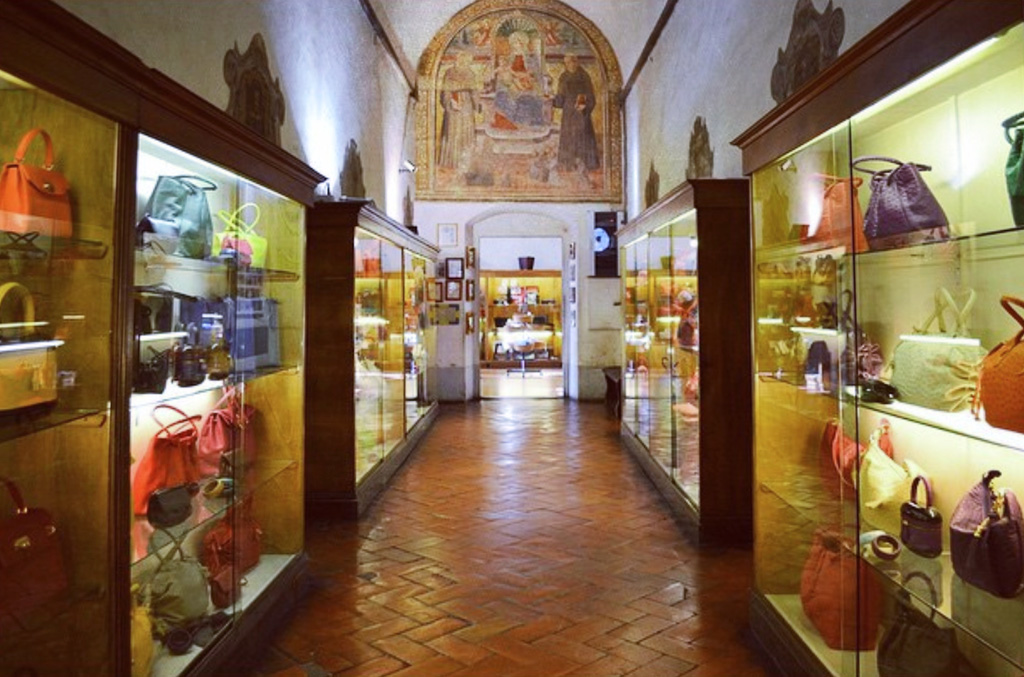
In the Santa Croce district the tradition of leather processing has arisen many centuries ago, and the names of the streets (via delle Conce, via dei Conciatori) still bear witness. Leather goods are still being produced throughout the city, and footwear, bags, handbags, belts, purses, gloves and desk sets are on sale. You can choose the small shops in the centre, or the stalls surrounding the S. Lorenzo Market or fine shops such as La Scuola del Cuoio for women's bags, Stefano Bemer for refined shoes, Il Bisonte for objects in tanned leather, made as tradition dictates.
Scuola del Cuoio
• Stefano Bemer
• Il Bisonte
Jewellery
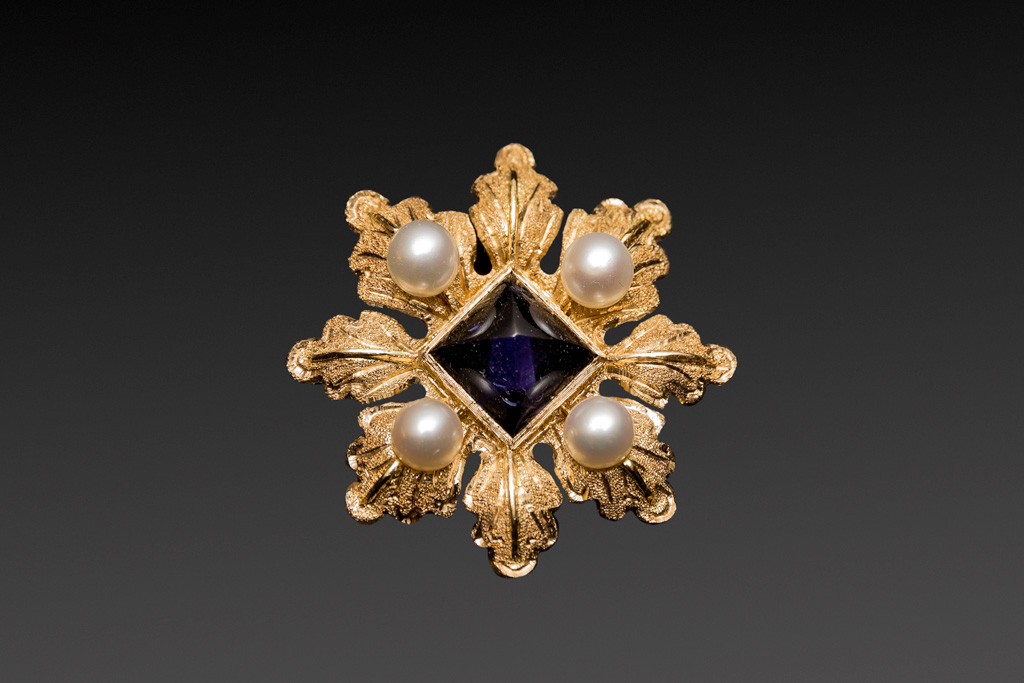
The processing of metals such as gold and silver and the use of precious stones to create jewellery has been a typical Tuscan artisan tradition since the Etruscan age. However, it was in the Middle Ages and the Renaissance that the goldsmithing art had an incredible development in Florence, thanks to the demand of wealthy merchants and bankers. Numerous jewellery shops illuminate Ponte Vecchio and the whole city. The master Paolo Penko makes pendants, earrings, rings, bracelets, tiles, bas-reliefs according to the Florentine tradition and is often inspired by the jewels represented in many Renaissance paintings.
Paolo Penko
Frames

The choice of a frame is obviously essential to enhance the painting, photography or engraving it contains, but the frame itself can also become a unique and precious object. In Florence the Bottega d’Arte Maselli has been producing quality artistic frames following ancient manufacturing techniques for sixty years. If you want to buy a frame, you can choose the kind of wood, the type of carving, the dimensions, and also the "gouache" gilding, the silver plating or the colour finish.
Bottega d’Arte Maselli
Glass and Crystal
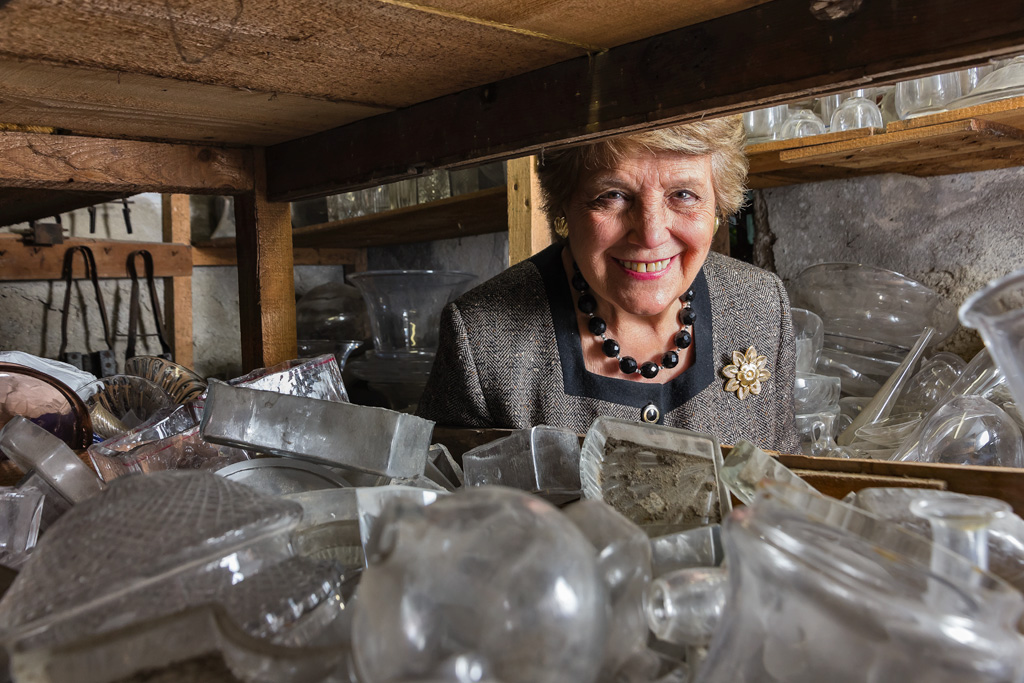
The transparencies of glass and crystal are the result of an ancient craft tradition that finds full expression also in the Moleria Locchi Laboratory in Florence Oltrarno. These craft masters have not only restored ancient objects such as cruets, salt shakers, table centerpieces, candelabra, amphorae since the end of the nineteenth century, but they also have been creating new objects, often finding inspiration in the artefacts of the Medici, the Empire or Art Nouveau periods.
Laboratorio di Moleria Locchi
Artistic Bookbinding and Paper
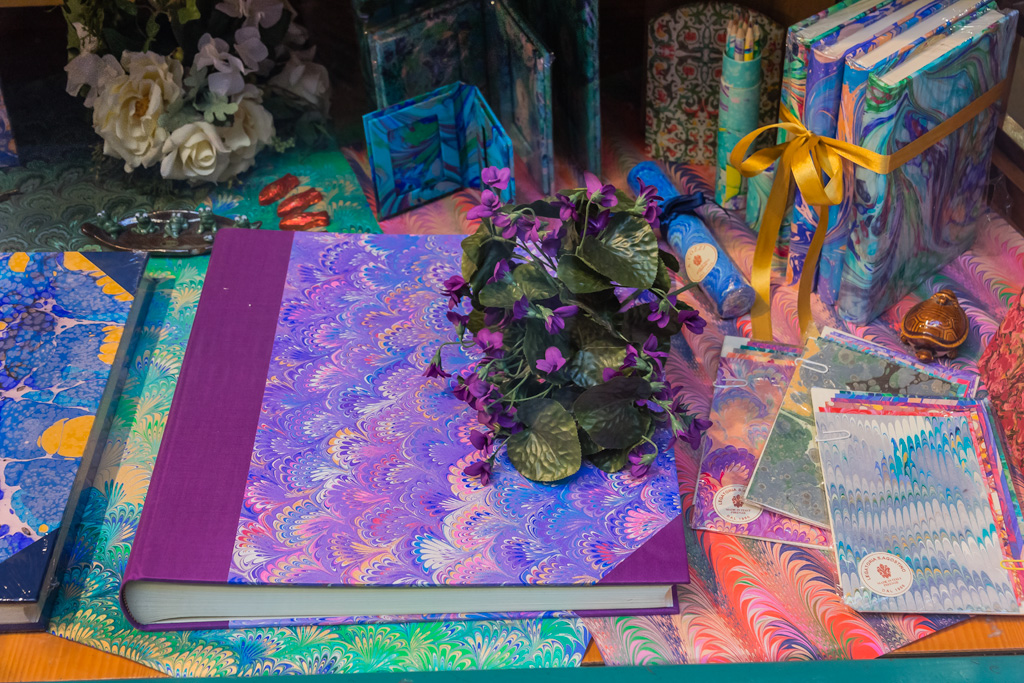
In several Florentine families, from father to son, the tradition of artistic binding has been transmitted. Hand-marbled paper, patterned papers printed with typical designs, customized notebooks, datebooks and albums are still produced.
Parione
• Giulio Giannini & Figlio
Florentine Mosaic

The semi-precious stone inlaid technique, or Florentine commesso, is a sort of stone painting. Drawings of flowers, animals, landscapes are made by assembling small pieces of hard stone. In the 16th century the Medicis, who appreciated these artefacts very much, promoted their production. Later this technique was improved by the masters of the Opificio delle Pietre Dure. Today there are still some workshops that make these mosaic works. Bottega Lastrucci, located in the ancient hospital of S. Francesco del Macci, is a very charming workshop to visit.
I Mosaici di Lastrucci
Ceramic
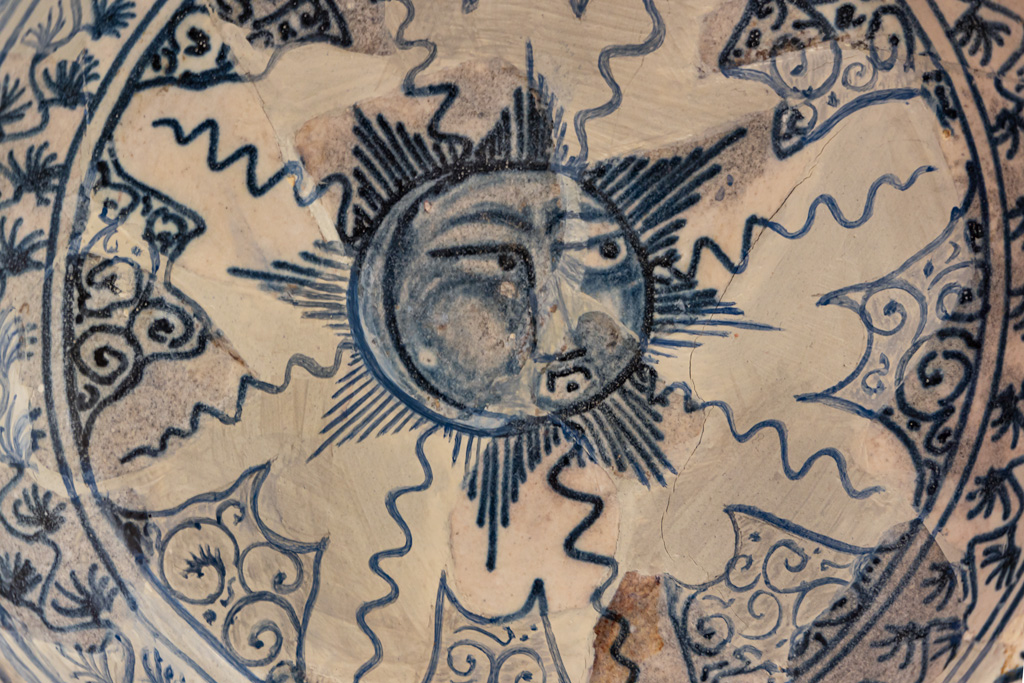
Hand painted ceramic plates, vases, ornaments and table sets are on sale in several shops in the historic centre of Florence. They are beautiful and are handmade according to the Tuscan tradition of Deruta or Montelupo, or to the Umbrian one, or finding inspiration in the decorations by contemporary artists.
La Botteghina del Ceramista
• Giotti
Trays

A typically Florentine artefact is the wooden tray, handmade and decorated according to the 14th-century techniques. You can choose the shape (round, square, rectangular, oval and with perforated handles, scalloped or shaped edges), the colour and the refined decorations (leaf, cherry, petal motifs).
La Bottega di Fiorenza
Wrought Iron
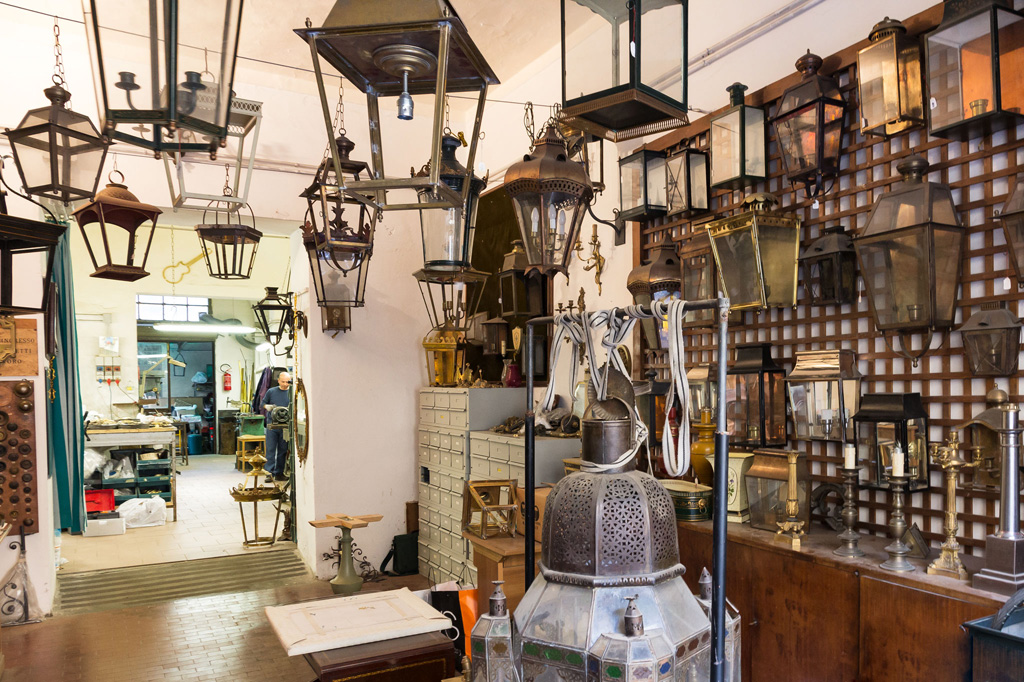
The iron is molded in Florence in various blacksmith shops. They are fascinating spaces, which seem forges of Vulcan: objects such as keys, handles, locks, chandeliers, appliques and decorative accessories of various kinds are created. The metal is worked with forge, anvil and hammer, without any welding but only boils. Objects made as the ancients did…
Il Ferro Battuto
Ferdinando Marinelli Artistic Foundry
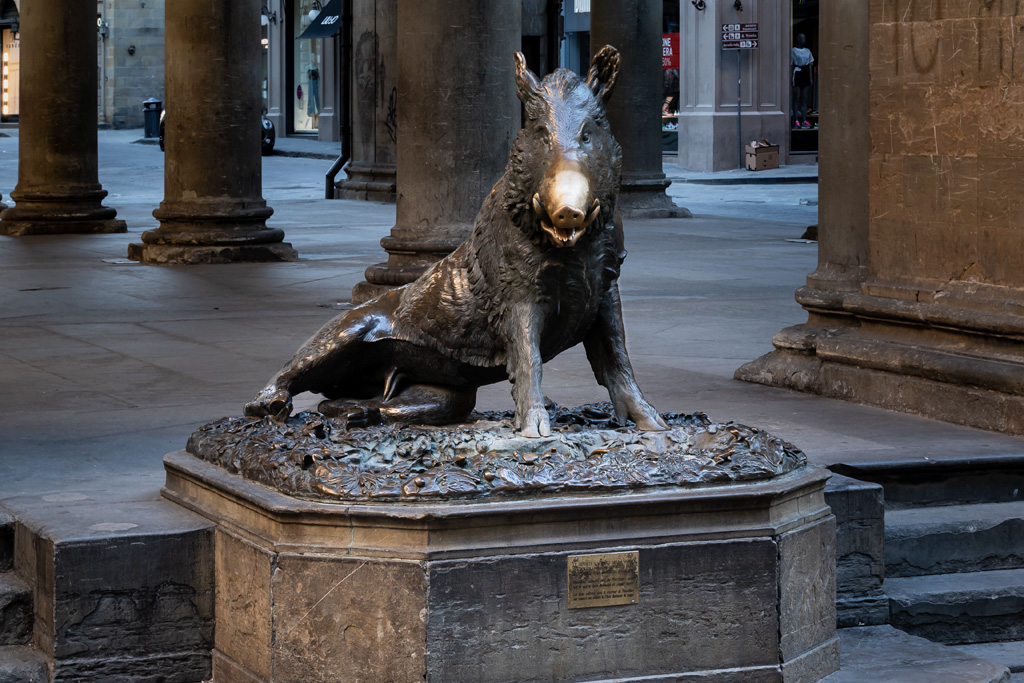
In Florence one of the best artisan workshop is the Ferdinando Marinelli Artistic Foundry, a reference point for bronze sculpture made according to ancient artisan melting techniques such as the lost wax technique, which is followed by hand-finishing. This foundry also produces sculptures in marble and semi-precious stones. The reproduction of classical statues, such as that of the Porcellino, is a very important part of their work and these perfect copies are exported all over the world.
Fonderia artistica Marinelli
Officina Profumo-Farmaceutica di Santa Maria Novella
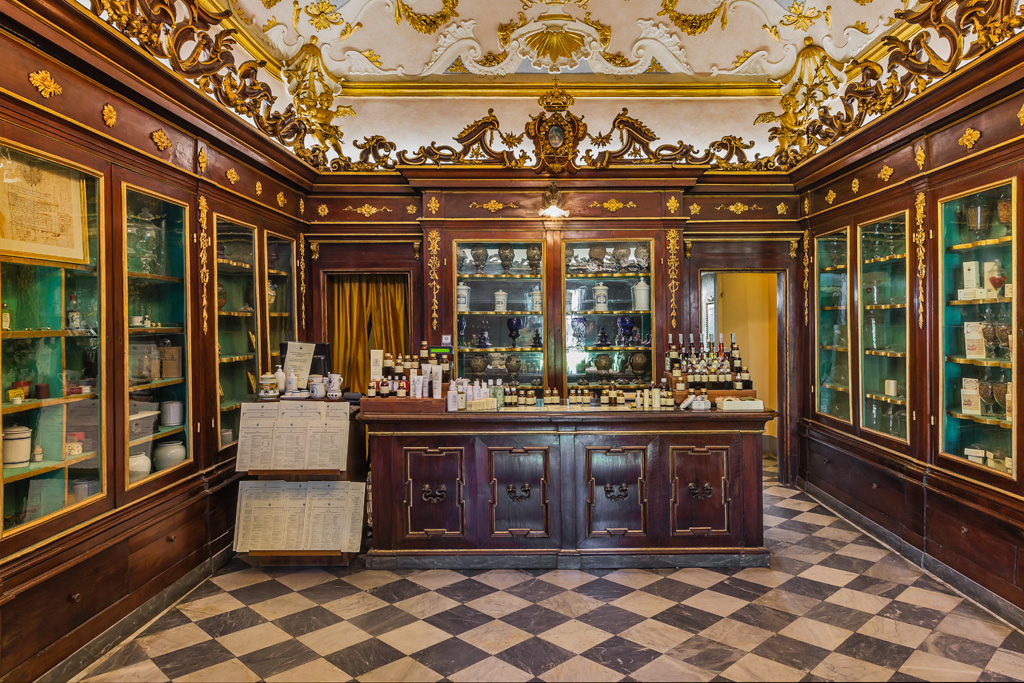
It is the oldest pharmacy in the world: it was founded by the Dominican friars in 1221. As early as 1381, rose water was sold as a disinfectant, especially in times of epidemics. The current perfumery, open to the public, dates back to 1612. Today perfumes, soaps, creams, potpourri, Officina elixirs are sold all over the world. If you are in Florence, it is mandatory to drop by, if only to admire the splendid historic premises such as the sales room, the green room, the ancient apothecary and the frescoes in the sacristy.
Officina Profumo-Farmaceutica
Barbara
florenceapartment@icloud.com

© yourflorenceapartment.com • Webdesign: © Gianluca Poletti • Photos: © www.ghigoroli.com